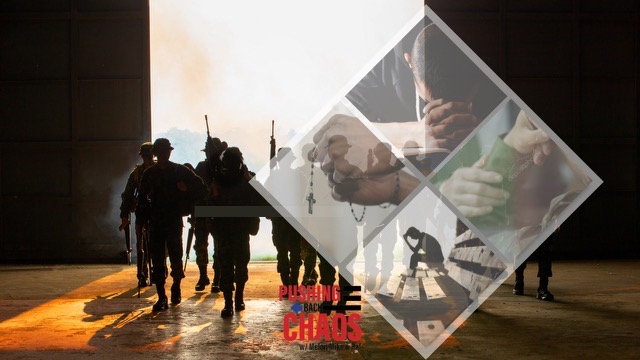Support Strategies for Individuals with Post Traumatic Stress by Family, Friends, and Community.
One of Jesus’ stories that resonates with providing mental health support for military veterans, their families and the wider community when dealing with post-traumatic stress (PTS) is the healing of the paralyzed man (Luke 5:17-26).
In the story, a paralyzed man is brought to Jesus, but due to the crowded house, his friends lower him through the roof to reach Jesus. Jesus recognizes their faith and not only forgives the man’s sins but also heals him, allowing him to walk again.
Applying this story to supporting veterans and their families facing PTS, we can identify the following ways in which friends, family, and the community can provide mental health support:
Persistence and Determination: Just as the paralyzed man’s friends persisted in finding a way to bring him to Jesus, friends, family, and the community can exhibit persistence and determination in supporting veterans and their families. They can actively seek out resources, treatment options, and support networks to help them navigate their journey to recovery.
Advocacy: The friends in the story advocated for the paralyzed man, going above and beyond to ensure he received the help he needed. Similarly, friends, family, and the community can act as advocates for veterans and their families, ensuring they have access to appropriate mental health services, support programs, and government resources. They can help overcome barriers and stigmas associated with seeking help.
Creating a Supportive Environment: The friends’ actions demonstrated their belief in the paralyzed man’s ability to be healed. Likewise, friends, family, and the community can create a supportive environment that fosters hope and belief in the potential for healing and recovery. They can offer emotional support, understanding, and encouragement, creating a safe space for veterans and their families to share their experiences and feelings.
Providing Practical Assistance: Just as the paralyzed man’s friends physically carried him to Jesus, friends, family, and the community can provide practical assistance to veterans and their families. This may include helping with daily tasks, accompanying them to medical appointments, or assisting in navigating the complex healthcare system. By offering practical support, they can alleviate stress and facilitate access to necessary resources.
Faith and Encouragement: The story emphasizes the importance of faith, both in Jesus’ ability to heal and in the paralyzed man’s determination to seek healing. Friends, family, and the community can provide a source of faith and encouragement for veterans and their families. They can remind them of their strength, resilience, and the potential for a brighter future, instilling hope, and motivation.
In summary, the story of Jesus healing the paralyzed man showcases the importance of persistence, advocacy, creating a supportive environment, providing practical assistance, and fostering faith and encouragement. Friends, family, and the community can embody these qualities when supporting military veterans and their families facing PTS. By doing so, they can play a crucial role in promoting healing, recovery, resilience, and hope.
Be sure to follow the Pushing Back Chaos Podcast at: https://www.heroesmediagroup.com/shows/pushing-back-chaos/ or any place podcasts can be heard.


